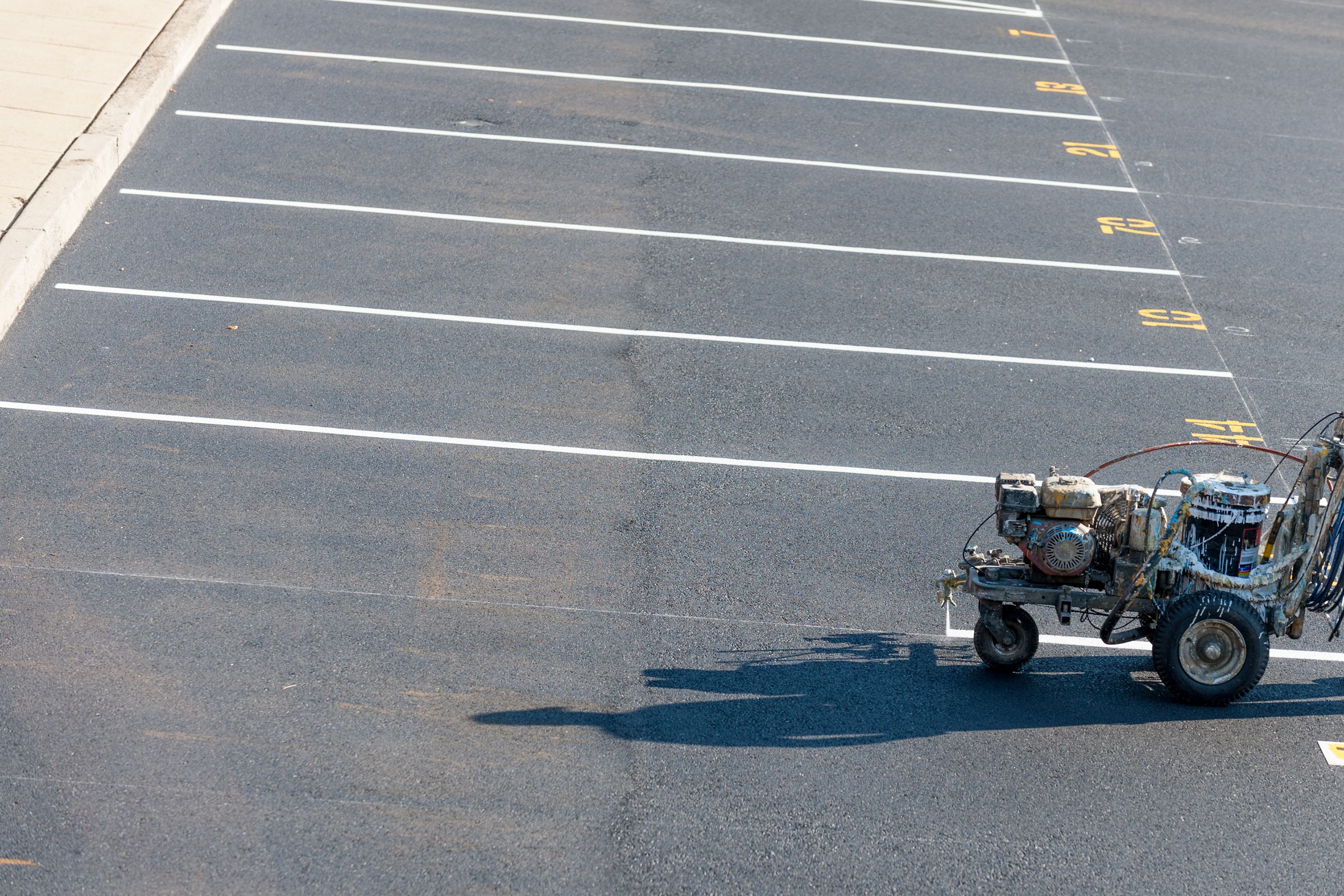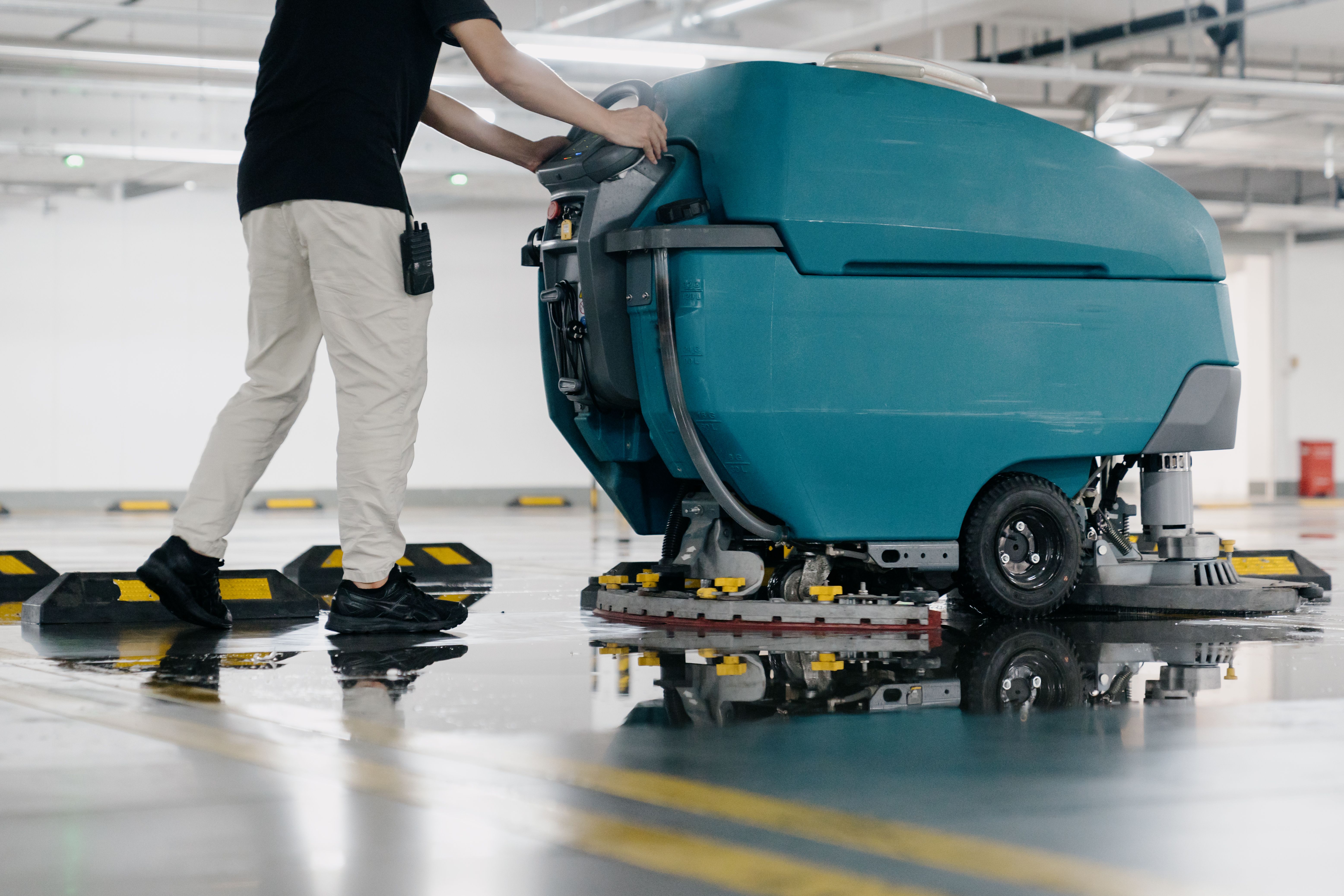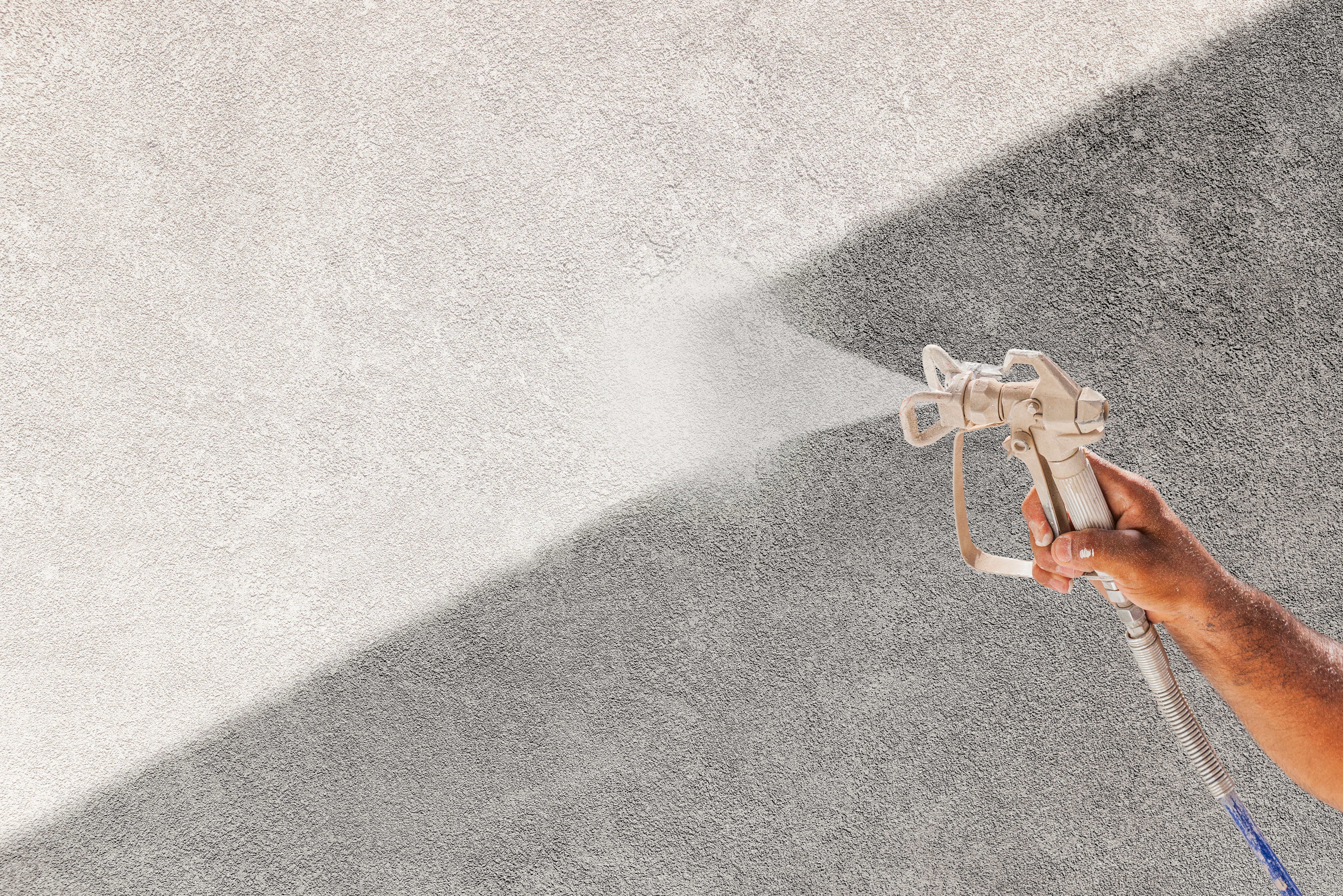Debunking Common Myths About Parking Lot Striping
Introduction to Parking Lot Striping
Parking lot striping is an essential part of property management that ensures safety, organization, and aesthetics. However, despite its importance, many myths surround this practice, leading to misconceptions about its necessity and functionality. In this blog post, we aim to debunk some of the most common myths about parking lot striping.

Myth 1: Striping Is Just for Aesthetic Appeal
One of the most prevalent myths is that parking lot striping is primarily for aesthetic purposes. While it's true that well-marked lines enhance the visual appeal of a parking area, the primary purpose of striping is to ensure safety and organization. Clearly defined lines help to manage traffic flow and designate parking spaces, reducing confusion and potential accidents.
Safety and Efficiency
Proper striping includes not only parking spaces but also directional arrows, pedestrian crossings, and fire lanes. These elements are crucial for maintaining order and ensuring that both drivers and pedestrians can navigate the lot safely. Safety should always be a top priority, and effective striping plays a critical role in achieving it.
Myth 2: Striping Is a One-Time Task
Another common misconception is that once a parking lot is striped, it doesn't require maintenance. In reality, paint can fade over time due to weather conditions, vehicle traffic, and other environmental factors. Regular maintenance and restriping are essential to keep the lines visible and effective.

The Importance of Regular Maintenance
To maintain a safe and organized parking lot, it's important to schedule periodic inspections and restriping as needed. Typically, parking lots require restriping every 1-2 years, depending on usage and environmental factors. This ensures that all markings remain clear and easy to follow.
Myth 3: Any Paint Will Do
Some property owners believe that any type of paint can be used for parking lot striping. However, this is far from the truth. The paint used for striping needs to be durable enough to withstand heavy traffic and harsh weather conditions.
Selecting the Right Paint
Parking lot striping requires specialized paint that adheres well to asphalt or concrete surfaces. It should be resistant to fading, chipping, and peeling. Using the right type of paint ensures longevity and reduces the frequency of maintenance.

Conclusion: The Reality of Parking Lot Striping
In conclusion, parking lot striping is far more than just an aesthetic feature. It plays a vital role in safety, organization, and efficiency. By debunking these common myths, we hope to highlight the importance of proper striping practices and encourage property owners to prioritize regular maintenance.
Ensuring a well-striped parking lot not only enhances the appearance of your property but also minimizes risks for all users. So, next time you're considering parking lot improvements, remember the critical role that effective striping plays in keeping your space safe and functional.